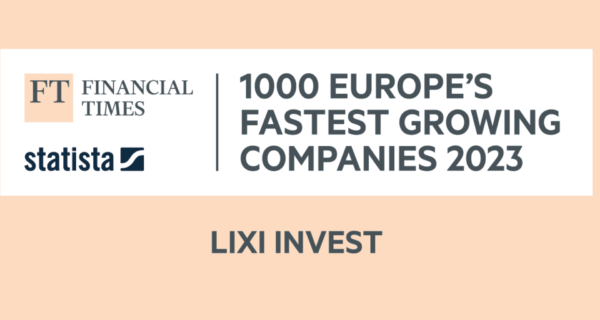What is the endgame goal of folks who are out to sell you financial products?
Let’s talk about the traditional banking and financial arena.
In this case, I am not referring to traditional banking products, such as checking accounts, deposit accounts, repurchase agreements, and everything that may be seen as liquidity.
We discussed that extensively in the article about income-asset imbalance.
I am now talking about the so-called “asset management.”
Just to be clear, I am referring to products such as actively-managed mutual funds, life insurance policies (the investment-driven ones), wealth management.
As well as any financial product having these features, which gets hawked to you at the bank counter or through financial promotion companies.
If you have given a quick looky-loo at my life story, you know that I worked for a bank for eight years, and as a financial promoter for four years.
As such, I know all the ins and outs of what I’m about to go over with you, since I have insider knowledge.
The first thing that should be raising red flags for you is the very denomination of this industry.
Asset management.
Now, I have no idea whether you would rather have someone “manage” your money, or someone who instead helps you “invest” money, in order to achieve your investment goals, for the long term, while diversifying and doing all those other things you are probably already familiar with if you have been following me for a while.
But inside what seems to be a mere technicality surrounding the industry’s denomination, there is plenty, and then some.
Ask yourself this:
What is the endgame goal, the economic incentive, the “reason why,” the corporate purpose of folks who are out to sell you financial products?
It’s not to make you more informed.
It’s not to help you make more money.
It’s not to help you lose less.
It is not about investing your money (or telling you how to go about it) in order for you to set up an income annuity supplementing your pension, to leave a capital sum to your kid, start a business, or whatever it may be.
The endgame goal, the one that makes the whole wheel go round, is to MANAGE your money.

Because it is precisely off of money MANAGEMENT that this whole industry (from your run-of-the-mill financial promoters, to managers, to CEOs, and to bank shareholders) thrives.
Not off of the outcome of your investing, your satisfaction and awareness level.
Far from it.
Let me explain further.
When you invest in one of these products being sold by and large at bank branches and financial promotion offices (life insurance policies, mutual funds, and wealth management), you are signing off on your money being managed.
You are delegating.
How do you think employees, sales reps, offices, and the entire organization from which you are purchasing the financial product get compensated?
They are clearly paid for by you, the customer, and your money.
Oftentimes without you even knowing it, or being fully and transparently informed.
Let me tell you how that works.
Let’s say you invest €500,000 in an investment fund, in a bid to set up a passive income stream. Which will be, after all, the ultimate goal of this article series.
With said €500,000 delegated to be managed, your goal is very clear.
Getting a yearly passive income to supplement your existing income.
Now, on these €500,000 invested in funds, insurance policies, or wealth management, management fees are accrued.
Which are, simply put, costs for the “management” service that is being provided to you.
It’s unlikely that you will be in the know about what these costs actually are.
They are usually relegated to the very end of some sort of endless fine print you have to put your John Hancock under, and sales reps know better than to point them out.

But how does one go about keeping costs on the DL, hence making the lengths the industry goes to in order to rake in billions and billions each year exceptionally non-transparent?
The focal point is that you do not pay said management fees as you would pay for:
- your lawyer’s retainer fee
- a visit to an orthopedic specialist’s office
- a cosmetic treatment at your beauty center
- your personal training membership.
Now, riddle me this: how do you compensate these professionals?
You compensate them with cold, hard cash, ready money, checks, wire transfers, credit cards, direct debits, or via any other method that you certainly cannot fail to notice.
When it’s your money under management, that’s not how it works!
The way it works is that management fees (we will go over how much they amount to next) are not directly charged to you, as is the case with costs for a service you are being provided, which you have to pay for via money transfer.
Management fees are instead deducted directly from the amount you have delegated “for management.”
Have you ever assumed that “when markets perform well, I earn little money… whereas when markets perform poorly, I lose a lot?”
This is exactly why you constantly have this bad feeling.
Which is not just a hunch, but it’s the truth.
Let’s go back to that earlier example and wrap things up with a numerical one:
You invest €500,000 in funds, insurance policies, or wealth management, with the express intention of setting up a passive income stream to supplement your other income sources, and without necessarily having to launch a capital increase.
You merely want a yearly 2%, 3% or 4% return, and you want it in the form of money landing in your bank accounts, in the form of passive income.
These are average costs that you may incur in the asset management arena.
Unfortunately, our computing system, our brain, cannot immediately figure out what “incurred charges amounting to 3,32%” means.
The brain gets tricked (and, alas, the whole traditional financial industry is well aware of and milks it) by two things:
- costs expressed in percentage terms
- indirectly charged costs (or payable via bank transfer, credit card…)
Investing €500,000 with 3.32% in annual costs, such as in the example above, translates precisely into doling out €16,600 a year in commissions. EVERY YEAR.
How would you feel writing a check or having to set up a wire transfer for €16,600 each year, just for a no-frills money “management” service?
€16,600, every year, regardless of the economic outcome of said “management” effort.
Outcome that, I know this full well and am going out on a limb here, is in no way a sure thing.
As is the case with any financial product or instrument aimed at delivering a greater-than-zero return.
So, the point is that the return outcome is obviously not a sure thing.
And, I’ll say it again, financial promoters cannot vouch for that, nor can bank employees and yours truly, let’s make this crystal clear so that there is no confusion.
What is a sure thing, certain and ongoing is you having to pony up €16,600 a year in management fees.
Which would amount to €166,600 over a 10-year period on €500,000.
Which would amount to €66,440 a year on €2,000,000.
Every year.
These are the numbers when it comes to asset management.
Or do you think that the skyscrapers on Wall Street, in Canary Wharf, or Gae Aulenti square are being paid for through the €1 fees on wire transfers or ATM withdrawals?
Mhhhhh.
So, what is the unbridgeable and unfixable issue when it comes to the traditional financial industry?

Conflict of interest
Diverging interests between you and them.
You want to invest money to get something out of it.
After all, you are licensing it out, leasing out your capital to someone else.
It is normal for you to want it to yield a profit, a return on your capital.
That’s the motivation pushing you to invest it, as opposed to spending it or keeping it in your checking account.
The return on invested capital is the bedrock of any capitalist system.
I’m sure this is clear to you, but make no mistake that the financial industry has no qualms labeling you as GREEDY for it, because you are keen on returns.
(My word, it has been said to my face)
So, as you invest money while humbly requesting for it to be paying off, the people you invest with have as their ONLY goal to pocket commissions off your money, by managing it.
You want to make money from your money.
They make money from your money (safely and with no risk-taking on their part, unlike you).
There’s the rub, let this sink in.
The more money they rake in through commissions, the less return you get out of it.
That’s first grade math.
If you invest €500,000 in an effort to secure yourself a passive income stream (2%, 3%, 4%), but you have to pony up 2%, 3%, 4% in costs each year, it is mathematically, historically, and statistically impossible for you to make some money out of it!
Example #1:
You invest €500,000 in an effort to get a supplemental income stream of €15,000 per year (3%).
But having your money managed sets you back €16,500 each year (3.3% in costs).
End result:
Your bank and promoter net a profit of: €16,500
Your profit: You lost €1,500 (€15,000 – €16,500)
Example #2:
You invest €500,000 with slightly higher risk-taking to get a €25,000 return year-over-year (5% annualized rate).
The bank will still charge you 3.3% in annual fees.
End result:
Your bank and promoter net a profit of: €16,500
Your profit: You walked away with €8,500.
Not too shabby, is it?
NO!
Because you took on 100% of the risks associated with investing at 5%, and they took on a ZERO% risk rate (your money earns them a commission regardless of your profits).
And the flip side of it is that they walked away with 66% of your returns!
And this explains why you never make any money (most of the time), and you get to earn peanuts compared to the risk you exposed yourself to (100% of the time)!

Mind you, I’m not saying that promoters, advisors, and bankers are thieves or scammers.
I’m just saying, quite simply but also in plain chapter and verse, that their interests (racking up as many commissions as possible) don’t match up with yours (making money from money).
And not only do they not match up.
But their goal (racking up as many commissions as possible) is precisely what dramatically reduces the chances of you achieving your goal (making money from money).
As soon as you set about raising these objections with your financial advisor or promoter, you will get two answers:
- But with me/us, you are also paying for a consulting service
- But I/we am/are successful in making money on the market, so that costs don’t weigh you down
I’ll pull it all to pieces for you, once and for all.
“3.32% per year is for the consulting service”
Okay, that’s fine with me.
Just look at other “consultants” in other areas of your life.
That is to say people, whom you trust and have faith in their expertise and integrity, charging you for “advice” to improve a given aspect of your life.
Just look at legal advisors, commonly known as lawyers.
Just look at commercial and tax advisors, commonly known as accountants.
Just look at medical consultants, commonly known as specialist physicians.
Just look at housing counselors, commonly known as architects.
Just look at fitness consultants, commonly known as personal trainers.
Just look at nutrition consultants, commonly known as dietitians.
The main differences between these professional consultants and those who dangle asset management financial products in front of you, are twofold, and we have already gone over this earlier:
- A bona fide advisor gets directly and transparently paid (retainer fees for lawyers, accountants, architects, physicians, etc.)
- A bona fide advisor does not create a conflict with your interests, as they will be looking after the interests of anyone they get money from (you)
Truth be told, the business of peddling financial products has WAY more to do with the business of SELLING than it does a consulting one.
Not that there is anything wrong with that, by all means, but we must come to terms with it.
You think you are getting guidance.
You have no clue how much you are actually being charged.
You are not getting guidance, but rather you are being sold a financial product.
Quite a racket.
“We are able to make more money than the market does, so that costs don’t weigh you down”
This argument goes over well with potential customers.
After all, if this individual who is giving me advice is an expert, they will know how to make money on financial markets, don’t they?
Reality is not exactly like that, quite the opposite.
To the “beating the market” concept, as in getting a higher return than other investors, other funds, and overall indices, we are going to dedicate our next video, where we will talk about ETFs.
Still, for the time being, all you need to know is that for you to get enough of a return to “not feel weighed down” by that 3.30% in annual costs (or something along those lines), you have to take on more risks on the market.
But the person taking the most risks on the market is you, and your money, certainly not them!
If things pan out, they earn 3%, you earn 3%, and you are both happy (you could have earned 6% or 5.8%, but you get the point).
But if things don’t pan out, they earn 3%, as for you, not only do you not earn anything, but you also end up seeing money shaved off your capital!
Are you really sure you want to put your entire net worth even more on the line, just to be able to offset excessive costs and render them negligible?
All of this just doesn’t make any sense.
Before signing off, I absolutely want to make one thing clear.
In this “commercial negotiation” and deal, you are the one in the driver’s seat.
You are the one who has something that tickles other people’s fancy, namely money.
It is you who must take control of your money.
All of this does not entail becoming an expert trader, or thinking that you can go it alone.
But you absolutely must wrap your head around the fact that, if YOU don’t look after your money, someone else will gladly look after it.
But they will be catering to their own interests, not yours.
You cannot blindly delegate the planning and investing of your money.
Granted, you can put to good use what the experts might tell you, and pick their brain, but the fact of the matter is that you will still have to buckle down and roll up your sleeves, to an extent.
Just think about your physical health.
You may hire the best personal trainer in the world.
You may have the best meal plan in the world.
You may have perfectly set up your charts and routine.
You may have purchased the best supplements and appropriate workout gear.
But nothing in the world can take your place in what, at the end of the day, will make the difference in improving your physical health.
Which means getting your sweat on, working hard, lifting weights, running, and eating healthy.
Would you ever dream of saying to your personal trainer, “No, no, look, I know jack squat about weights and muscles, knock yourself out, I ain’t doing that, isn’t that why I’m paying you after all?”
That doesn’t make any sense, because they may very well take over your workout, but it’s them who will be reaping the benefits.
So, likewise, it makes no sense to consider fully delegating one’s financial future to people, as we have seen, whose main concern lies in cashing in on managing your money.
And do you really want to know what you are paying for with that 3.5% a year?
Big-time investment managers?
Big-time financial analysts?
Hedging against losses?
A return above the market average?
Nein.
I hate telling the truth all the time, but someone has to do it nonetheless.

You are paying for, respectively:
– the diamond for the Area manager’s mistress
– the Belarusian gal at the District manager’s nightclub
– the promoter’s son’s Bocconi tuition
– the office secretary’s Maldives vacay.
Oh, well, you are also paying for the office space itself.
Grandiose, no less, because people care about this stuff.
IT IS NOT NORMAL AT ALL TO PAY 3.5% A YEAR FOR INVESTING PURPOSES.
This is the retail price, which will need to cover both wages and benefits for office employees, the promoter, the director, etc.
What is a “fair” price you should have to pay management companies for “managing” your money? 0.5%, 0.4%, 0.2%… these are costs in sync with current prices.
And how do you get that?
By buying wholesale, upstream of the supply chain, through ETFs, directly via your online banking service (we will delve into it further in our next video), hence bypassing all the “circus” acts in between.
You get to invest in the same products, albeit saving tens of thous










